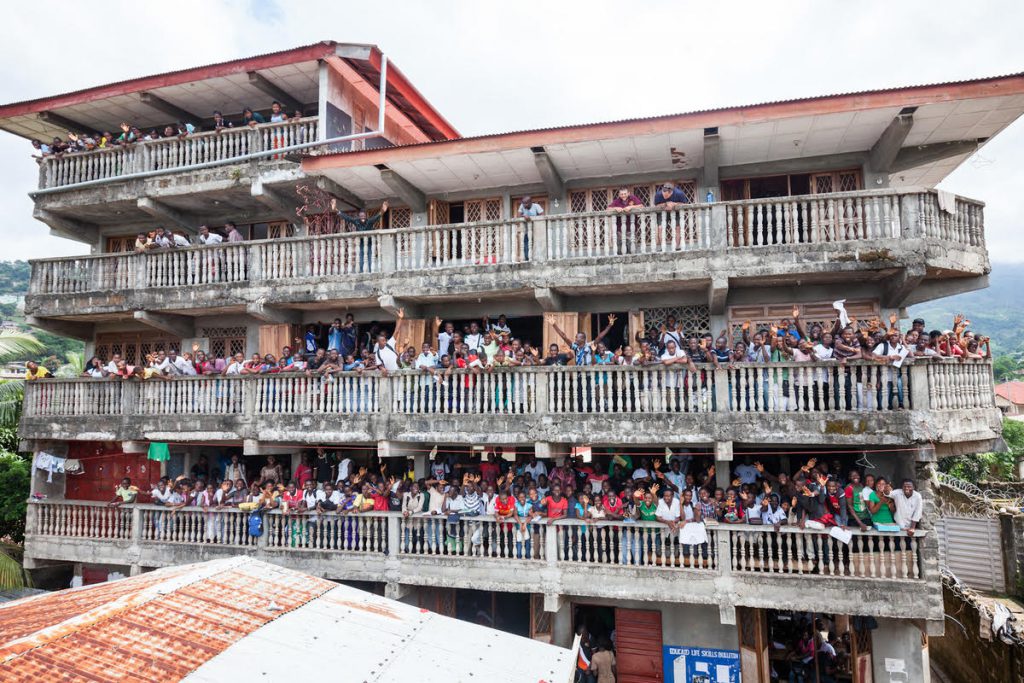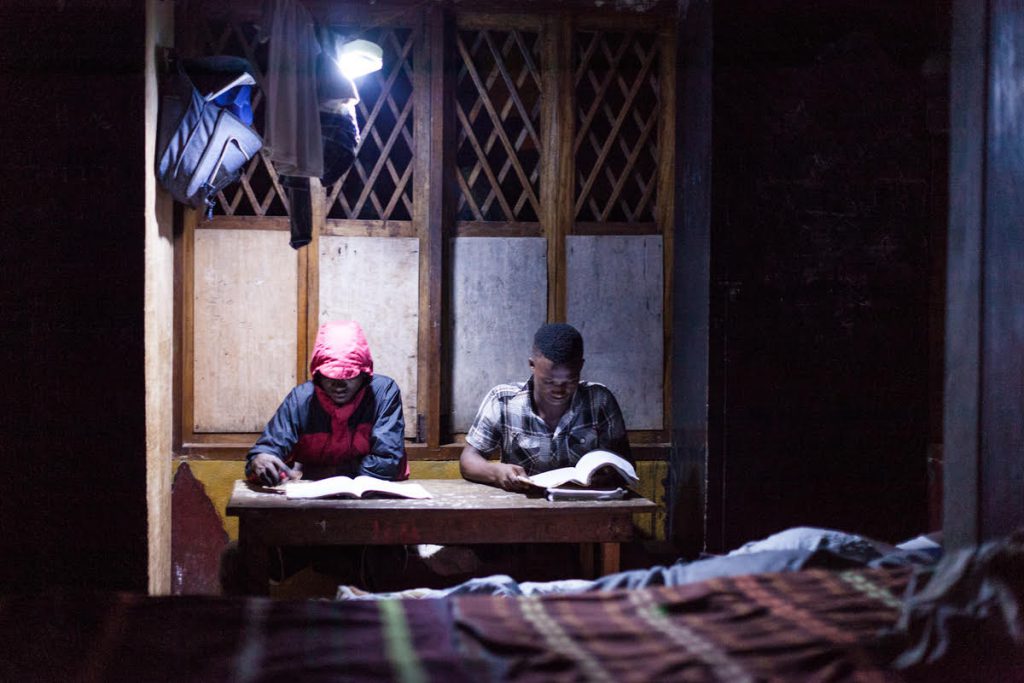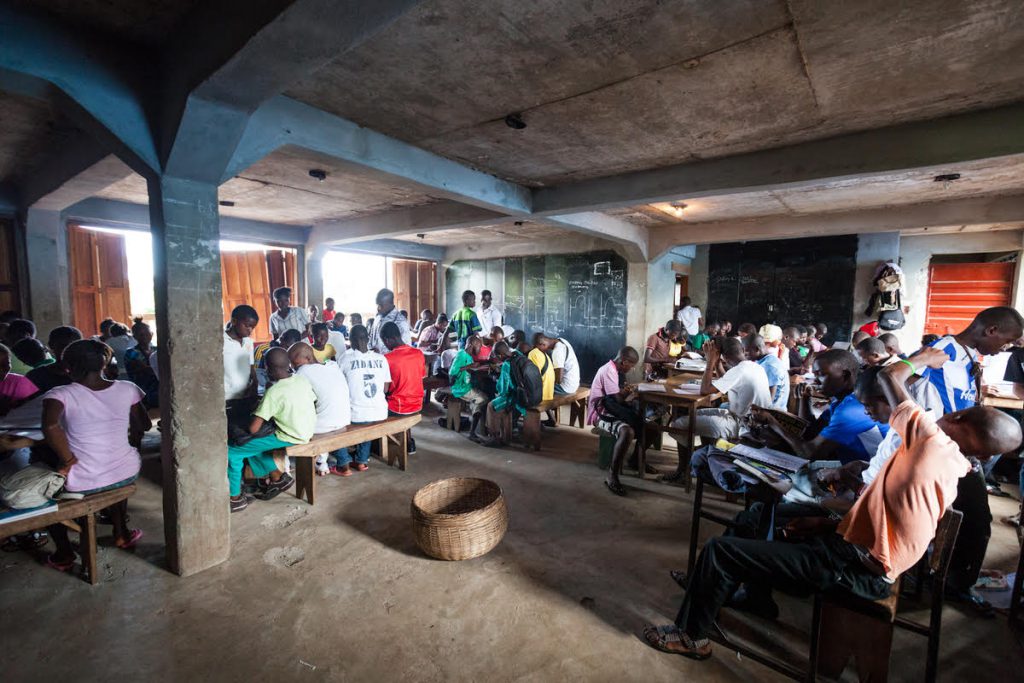Space to learn & live & love
Space to learn & live & love
Contribution to the Blog Series: Space2Learn.edublogs.org
The conventional wisdom is that the best place for any child growing up is in their family. In an ideal world, where that family is financially stable and the family has the wherewithal to care for the emotional, social and welfare needs and rights of a child, then this is clearly the case. But, what about when the family already is two or three adults who are surviving as subsistence farmers, palm wine tappers or fishermen who rarely see cash and are already trying to cope with a dozen or so more dependents? Is adding another mouth at the table, another body needing clothing, shelter and healthcare really likely to result in a life that is truly best for the child?
Far too often in Sierra Leone, this results in a less than positive ‘men pikin[1]’ situation where the child becomes cheap labour and is viewed as an additional burden to be treated with as little joy and love as one would expect a dependent burden to be treated with.
What about, if instead of a relationship of total dependence, a relationship of interest and kindness can be maintained by regular visits and interactions between the child and her / his relations? What if the institution where the child lives, learns from the best of family life, to provide a secure home, a space where kindness, encouragement and love are the norm? A place where the child is valued as a member of a community, learns about her or his rights and responsibilities? A place there the child can easily access their welfare rights as well as social and emotional support while maintaining a relationship of concern with actual family relations?
This is the environment that EducAid has endeavoured to create for its most vulnerable, young family members. For many of our children, EducAid is a place to learn to live and love just as much as it is a place to learn maths and English.
How do we manage this in a resource-constrained context? Our learning spaces are also our living spaces. Our schools have to be flexible spaces that can be adapted for many uses. Traditional classrooms have groups of around 30 students encased in four walls and at the end of the day, the room is locked up and unused until the next morning. In EducAid, we need spaces that can be home to a great variety of activities: family meetings, lessons, after hours games, whole school debates, sleeping, eating and learning.

EducAid Lumley is a great case in point. My mother in law’s vegetable patch was the only available space when, in 2005, EducAid was obliged to move out of the rented house we had been using up to that point. The space was sufficient for one spacious room but not more. When it was impossible so spread out, we went up. Now, this unfinished building is learning space for over 500 young people during the day and living space for over 100 who do not have safe homes to go to where they can continue to study. The girls stay on the top floor. The boys are downstairs. Smaller spaces have been carved out of the 2nd floor to create the ICT room at one end and a science lab at the other end. To add space, we have windows that open completely, transforming the corridor / veranda along two walls doubling the lab’s size.
The blackboards that get used for small group explanations and demonstrations also double as cupboards where the live-in children keep their bag of clothes, their property and their sleeping mat and mosquito net.
After evening study, benches get packed together and mats placed across them to form a bed. Tables are upturned on each other to facilitate the hanging of mosquito nets. The electricity, which has been on for the previous 3 hours to make study time possible, is turned off. Silence slowly comes as over one hundred youngsters get their beauty sleep.
I sometimes come in late and make my way through the tangles of sleeping teens and, too often for my liking, find groups who have woken each other up for additional study during the night – gaining an education in Sierra Leone is a life or death issue, determining who will flourish and who may too easily be marginalised forever.
Yes – our schools are schools, so they are learning spaces, but they are so much more than this too!

[1] Men pikin translates as ‘minded child’ i.e. foster child and happens a lot where children are left when parents die or are incapable of providing for them. It happens informally and with no supervision – it can work wonderfully sometimes but at others it can be severely abusive.
If you are interested in knowing more about EducAid’s work with vulnerable young Sierra Leoneans please go to www.educaid.org.uk
If you are interested in supporting our work in any way, please to go: www.educaid.org.uk/get-involved/
